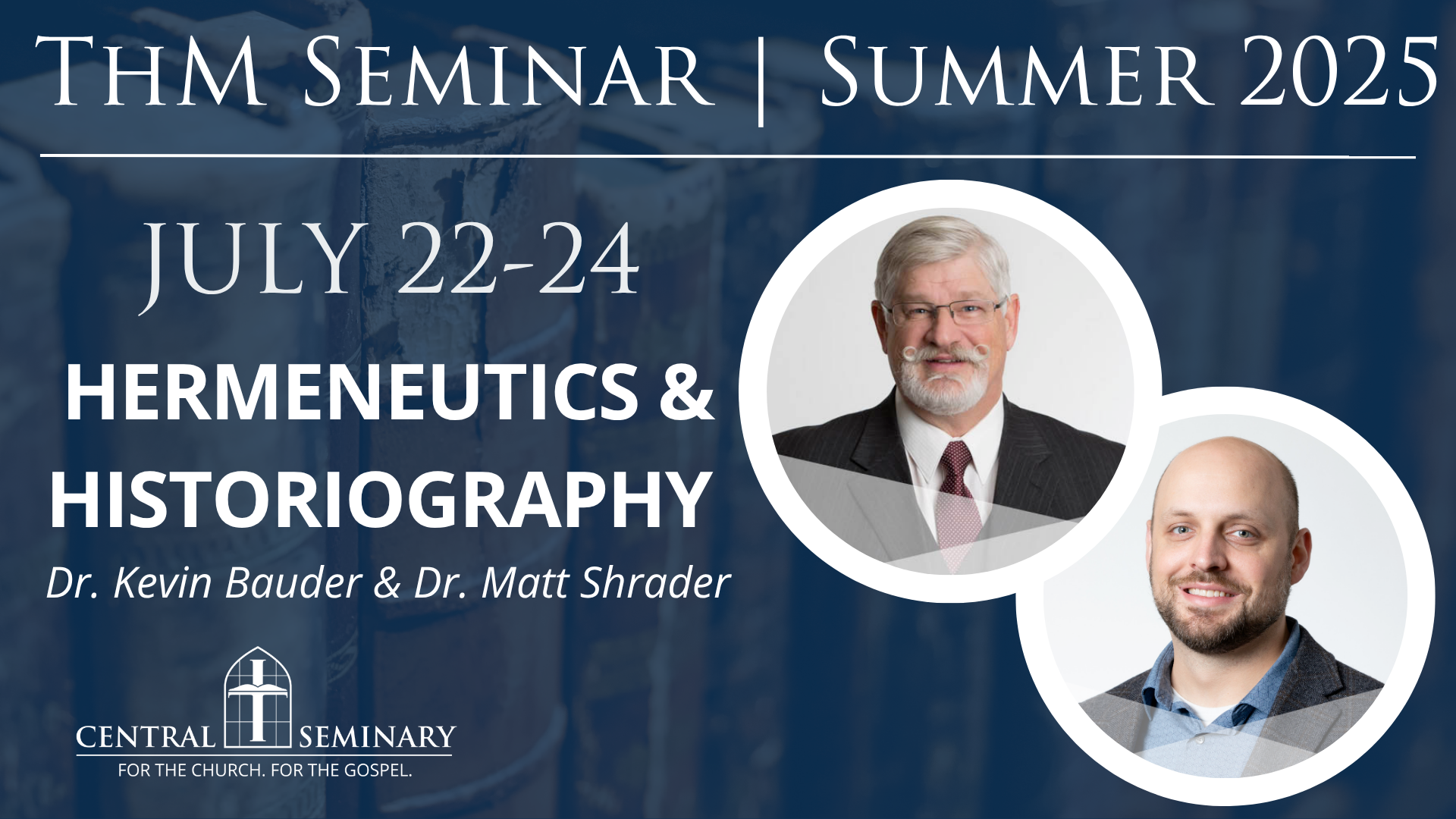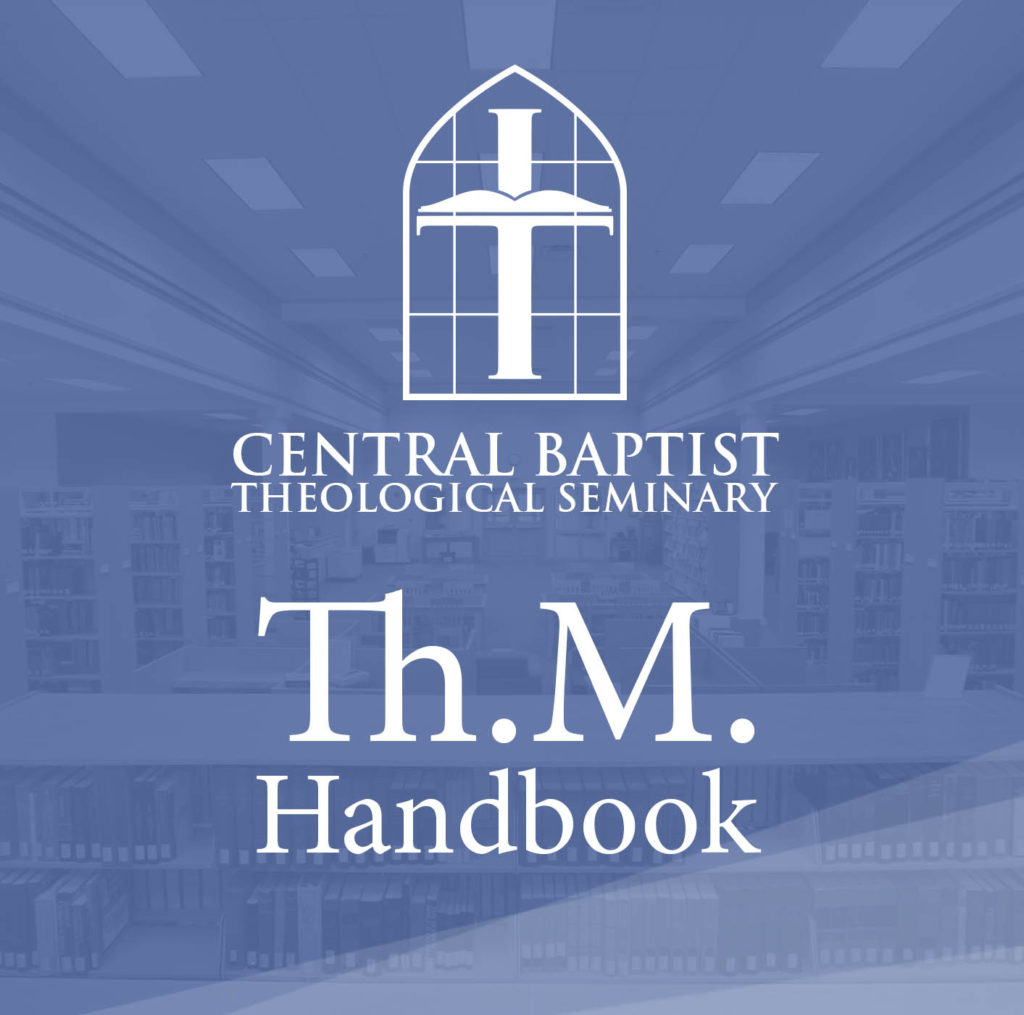Master of Theology
The purpose of the Master of Theology (Th.M.) program is to initiate students into the scholarly disciplines of research and writing.
You feel that God is leading you into the world of Christian scholarship. It is an exciting prospect tempered by the expectation of a great deal of work. The questions start coming. Who will mentor you through the process? How can you make it fit within your already busy schedule? Do you even have the capablity to do the work?
It is time for you to think about the Master of Theology degree at Central Seminary. Here you will find a warm fellowship of Christian scholarswho will guide you through your journey. The Th.M. at Central is everything you need. The courses are taught by some of the best minds in Fundamentalism. The structure is modular which will allow you to continue your life while you study. The faculty will partner with you to make sure that you succeed in your task. You will be introduced into the wider world of Christian scholarship.
Accessible
We are excited to announce that the entirety of the Th.M. can be completed in residence or through our distance education option! Our synchronous setup allows distance students to be live in the classroom. All you need is your computer and a good internet connection to attend class.
Admissions
Applicants must have a recognized M.Div. degree or its equivalent with a minimum GPA of 3.0 (B). A limited number of students with an average grade lower than B may be admitted on a probationary basis, if otherwise acceptable.
Applicants must demonstrate a working knowledge of Greek and Hebrew. Typically, the applicant’s transcripts should reflect 18 semester hours of Greek and 12 semester hours of Hebrew prior to application for the Th.M. program.
Graduates of M.Div. programs other than Central Seminary’s may be required to take either written or oral entrance examinations at the seminary’s discretion. Other academic, psychological, or spiritual examinations may be required at the discretion of the seminary.
Normally, students will submit a thesis or extended research paper that they have written previously. Otherwise, the faculty may administer an examination in connection with the application.
Handbook
Course Structure
The Th.M. degree employs a modular graduate course format. The Th.M. program is structured around three terms: Spring (January-May), Summer (June-July), and Fall (September-December). Students may choose to meet the 24 hours of course requirements in the following ways:
- Post-graduate courses taught apart from the M.A. (Theology) and M.Div. courses
- Teaching practicums taught under the supervision of full-time faculty
- Independent study as specified in the Th.M. handbook
Program Structure
Courses in the Master of Theology program are primarily research seminars in structure. The requirements for each course are divided into three areas: pre-seminar requirements, seminar requirements, and post-seminar requirements. Students may also teach a graduate level course under the supervision of a full-time faculty member.
Required Courses (14 hours)
NT 800 4 NT Core Seminar
OT 800 4 OT Core Seminar
RS 800 2 Guided Research Paper
ST 800 4 Seminar in Hermeneutics & Historiography
Elective Courses (12 hours)
____ 4 Chosen Discipline
____ 4 Chosen Discipline
____ 4 Chosen Discipline
Thesis (4 hours)
Total 30 hours
Current & Upcoming Courses
Our Spring Seminars offer focused concentrations in Old Testament, New Testament, and Systematic Theology.


